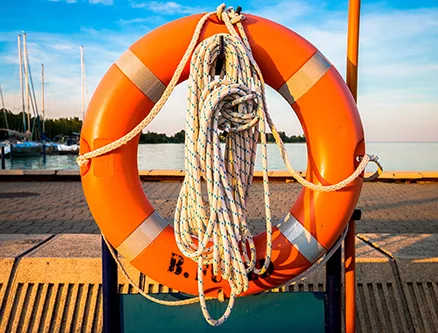
You’ve just booked a bucket list trip. Whether it’s a Bali getaway, an Alaskan cruise, or a South African safari, you’re about to head to your dream destination. Then the question comes up about travel insurance. Do you or don’t you purchase it?
Ultimately it comes down to the cost-benefit analysis and how much risk you’re willing to take.
Think of it this way. We buy insurance for our major investments — our homes, cars, and even our lives. Bucket list trips are also one of a family’s most significant investments, especially if they involve an expensive, exotic destination or a multi-family trip. Most of us can’t afford to lose that vacation investment.
Summer travel this year had an unusually high rate of flight delays, trip cancellations, and various airline dramas that may continue until the year’s end. Planning will save you money and frustration.
What travel insurance covers
What does travel insurance cover, and why do we need it?
According to Kristy Mosolino, owner of Wishes Travel in Birmingham, Alabama, “Travel insurance protects several things: your financial investment in case you have to cancel a trip, a return flight home due to an emergency, and medical coverage.” She adds, “U.S. insurance is not accepted abroad, and if you have to be treated or admitted to a hospital, you can expect to pay that bill in its entirety before you leave the destination.”
Purchasing travel insurance does involve weighing the cost and benefit. The cost varies based on where you’re traveling from, the type of trip, and the traveler’s age. “But consider this — would you rather spend 6 to 10 percent of the total trip cost for peace of mind or risk losing thousands of dollars in case of an unforeseen event?” Mosolino says.
Here are examples of how having travel insurance has made all the difference.
A traveler was on a Mediterranean cruise when his mother suddenly passed away. Because he had travel coverage, he and his wife could depart Greece for the U.S. at the next port of call and receive compensation for the remaining portion of the cruise and their flights home. The insurance company’s emergency flight desk even helped book those flights.
While in Paris, one of Mosolino’s clients became ill, requiring emergency medical treatment. Her travel insurance covered everything: the evaluation, medical tests, physician, and prescriptions, and even reimbursed her for missed excursions.
From personal experience, Mosolino says she missed making her Alaska cruise this summer due to an airline strike. As a result of having travel insurance, she received total compensation for the missed cruise, her booked excursions, an unused hotel room in Vancouver, and her unexpected overnight stay in Los Angeles.
Without travel insurance, her losses could have been in the thousands because the cruise line is not responsible for compensating for an airline strike issue or missed connection.
 Not worth the risk
Not worth the risk
No one has power over unforeseen events that could impede our travel plans.
A death in a foreign destination is tragic enough. But consider if family members were responsible for repatriating remains, which could cost $10,000 to $20,000. That’s a substantial financial burden on loved ones. Or if an accident or severe illness occurred and you or a family member had to be life-flighted back from the destination.
One of my friends was ready to take a luxury cruise with her husband to celebrate their 25th wedding anniversary. The day before sailing, her mother suffered a severe fall and was hospitalized. The cruise line was sympathetic when she called. But they did not give her a refund or offer to re-book. Company policy clearly states no refunds if you cancel within 14 days of departure.
How to get travel insurance
When you book with a reputable travel agency, your agent will likely offer travel insurance. I have always had this experience. If you booked a trip, the cruise company may offer insurance, for example. However, be aware that although this insurance may cover the cancellation of the trip, it would not insure anything from a medical standpoint. You’d want to look at major companies like Travel Guard, Allianz, Travel Insured, or Trip Mate. You can even compare quotes.
So, the next time you plan that “trip of a lifetime,” follow the American Express motto regarding travel insurance and “don’t leave home without it.”

 Not worth the risk
Not worth the risk



